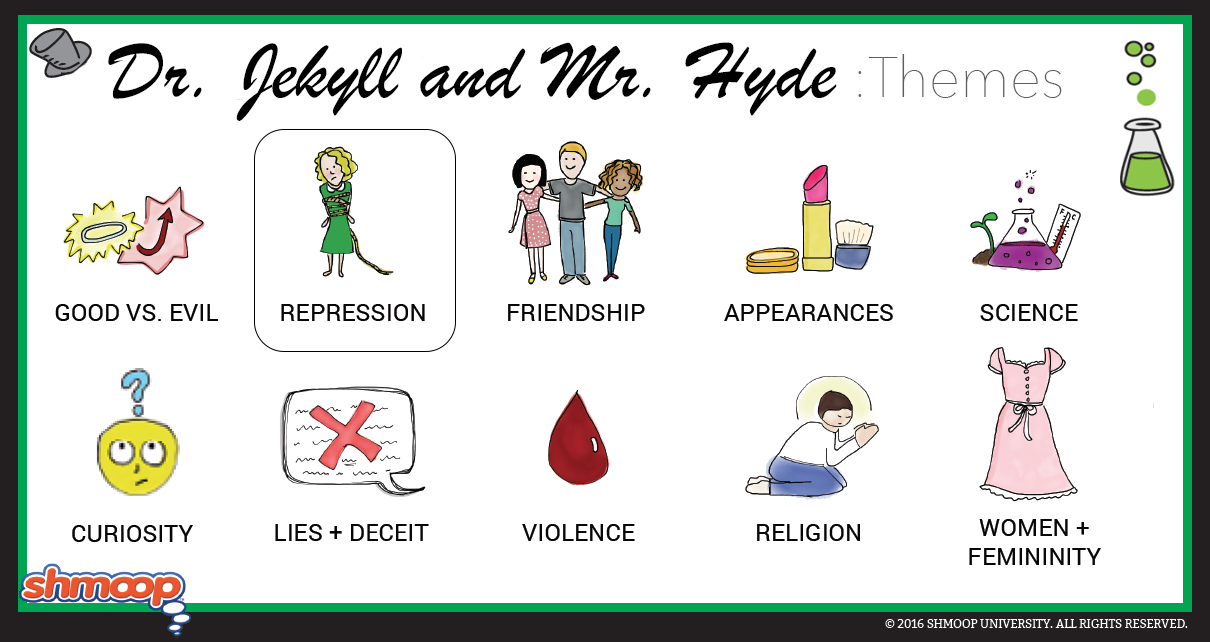 (Click the themes infographic to download.)
(Click the themes infographic to download.)
Repression is indisputably a cause of the troubles in Dr. Jekyll and Mr. Hyde. The repression here is that of Victorian England: no sexual appetites, no violence, and no great expressions of emotion, at least in the public sphere. Everything is sober and dignified, and you’re really not supposed to be happy. (That would somehow take away from your focus on morality). The more Dr. Jekyll’s forbidden appetites are repressed, the more he desires the life of Mr. Hyde, and the stronger Mr. Hyde becomes. This is clearly demonstrated after Dr. Jekyll’s two-month hiatus from donning the visage of Mr. Hyde; Dr. Jekyll finds that the pull to evil has been magnified after months of repression.
Questions About Repression
- Does Mr. Utterson lead a repressed life? On the one hand his life is full of routine—exploring the Dr. Jekyll/Mr. Hyde stuff seems to be his way of cutting loose. But on the other hand… he doesn’t seem unhappy with his staid way of living.
- If Dr. Jekyll finds all this pleasure in being evil, why doesn’t he just stop being so repressed, forget about this whole respectable doctor shtick, and go lead a criminal life?
- To what extent is Dr. Jekyll’s repression meant to represent the repression of other British citizens? Is repression particular to Dr. Jekyll, or is this a problem for other people, too?
Chew on This
Dr. Jekyll’s difficulty in dealing with his inner desires is meant to reflect the difficulties of society at large.